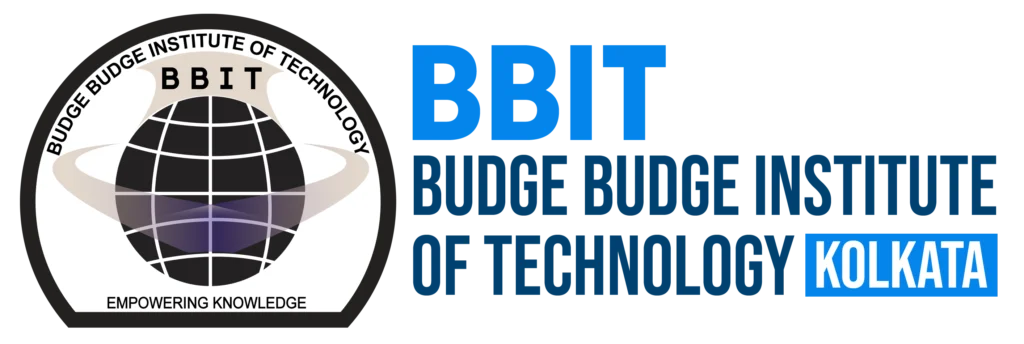Become Leaders of Tomorrow!
The MBA in Human Resource program offered by BBIT College Kolkata is a two-year postgraduate degree designed to provide students with a robust understanding of business administration alongside specialized knowledge and skills in human resource management. The curriculum encompasses a diverse range of subjects, including Digital Human Resource Management, Compensation Management, Talent Management, Employee Engagement, HR Analytics, Diversity and Inclusion, and Labor Relations. This combination of foundational business education with HR-specific expertise enhances students’ employability and broadens their career prospects in the human resources field.
The program places a strong emphasis on developing critical and analytical thinking within the specialized area of human resource management. To achieve this, students engage in a variety of learning methods, such as case studies, projects, workshops, and masterclasses conducted by industry experts. These pedagogical tools offer practical exposure, allowing students to apply their theoretical knowledge to real-world scenarios. By actively participating in these activities, students acquire the necessary skills to navigate the complexities of HR management within organizations.
Upon completing the program, graduates possess a comprehensive skill set that enables them to manage various HR functions effectively. They gain expertise in recruitment, training, performance management, and HR strategy, among other areas. This blend of business administration and specialized HR skills equips graduates to make strategic decisions, manage human resources efficiently, and contribute to the overall success of organizations. With a strong foundation and practical experience, graduates of the MBA in Human Resource program from BBIT College Kolkata are well-prepared for rewarding careers in the dynamic field of human resources.

Program Outcomes (POs):
Integrative experience and experiential learning:
Formulate an integrative business project through the application of multidisciplinary knowledge.
Problem analysis:
Identify, formulate, review research literature, and analyze complex management problems, reaching substantiated conclusions using decisions based on creative thinking.
Design/development of solutions:
Design solutions for complex organizational problems and design system components or processes that meet specified needs with appropriate consideration for public health and safety, and cultural, societal, and environmental considerations.
Effect of global environment on business:
Employ effective cross-cultural communication and manage differing business practices and social conventions. Demonstrate awareness of international business activities and customs, and adapt to various global business environments.
Social, legal, and ethical responsibilities of organizations and society:
Analyze the impact of decisions on stakeholders, applying diversity frameworks and understanding global business contexts. Implement ethical principles and evaluate corporate social responsibility, considering economic, environmental, political, legal, and regulatory contexts.
Strategic and innovative thinking skills:
Develop novel products, processes, or organizational forms by identifying and solving problems using qualitative and quantitative methods. Assess environments and opportunities, and align business activities to implement strategic changes in complex and uncertain conditions.
Effective oral, written, and presentation communication skills:
Prepare logical and relevant arguments and demonstrate professional interaction and communication skills through effective oral and written presentations.
Ethics:
Apply ethical principles and commit to professional ethics, responsibilities, and norms of business practice.
Individual and team work:
Function effectively as an individual, and as a member or leader in diverse teams and multidisciplinary settings.
Communication:
Communicate effectively on complex business activities with the business community and society at large, including writing effective reports, making presentations, and giving clear instructions.
Functional business knowledge:
Analyse and apply accounting information for strategic decision-making. To manage firm growth through financial decision models and strategies like mergers, acquisitions, and new venture development.
Life-long learning:
Recognize the need for, and have the preparation and ability to engage in independent and life-long learning through delivering an appropriate skill set.
Program Specific Objectives (PSOs):

Critically analyze complex power system scenarios and propose solutions using acquired theoretical and practical knowledge.

Work on defined projects by interpreting power system data to provide real-time solutions to system issues

Identify optimal solutions to enhance power transfer capability, improve power quality, and ensure reliability.
This program is ideal for individuals passionate about manufacturing and designing power systems, who possess strong problem-solving abilities and a desire to pursue rewarding careers in electrical system design, development, and maintenance, ensuring quality, safety, reliability, and sustainability.
Program Educational Objectives (PEOs) of MBA Department:
Domain Knowledge:
To equip postgraduates in MBA with fundamental concepts of core domain subjects like marketing, finance, and human resource management, along with technical competency to work effectively in various managerial domains.
Communication:
The students would receive thorough exposure on how to groom themselves to become industry-ready and effective techniques on how to meet and greet industry professionals for interviews.
Projects and Case-Based Learning:
To provide practical exposure by working with real-time cases and facilitate regular industrial training and industry visits to meet the basic requirements of the management process.
Research and Development:
To encourage management graduates to undertake various research and development work and benefit society in turn.
Global Perspective:
To conduct an analysis of the political, economic, social, technological, legal, and environmental factors relevant to strategic decision-making for a global organization. Also, to evaluate and develop recommendations regarding corporate business strategy for an international market.
Leadership and Interpersonal Skills:
To demonstrate effective leadership and interpersonal skills in a team environment. Recommend actions that improve organizational effectiveness.
Program Specific Outcomes (PSOs) of MBA Department:
Core Courses:
Application of multidisciplinary knowledge comprising finance, operations, systems, marketing, and human resources management to integrate business projects.
Optional Elective Courses:
Usage of business metrics to evaluate business projects and develop growth strategies.
Workshops & Seminars:
Empower students to innovate and execute business ideas during challenging business situations.
Potential Job Roles
Human Resource Manager:
Oversees the HR department, manages recruitment, employee relations, performance management, and ensures compliance with labor laws.
Talent Acquisition Manager:
Focuses on sourcing, attracting, and hiring top talent to meet the organization’s staffing needs.
Training and Development Manager:
Plans, directs, and coordinates programs to enhance the knowledge and skills of an organization’s employees.
Employee Relations Manager:
Manages relationships between employers and employees, handles grievances, and fosters a positive work environment.
Compensation and Benefits Manager:
Designs and manages employee compensation, benefits programs, and ensures they are competitive and compliant with regulations.
HR Generalist:
Handles a wide range of HR tasks, including recruitment, onboarding, employee relations, performance management, and compliance.
HR Consultant:
Provides expert advice to organizations on HR practices, policies, and strategies to improve overall effectiveness and efficiency.
HR Director:
Leads the HR department, develops strategic HR initiatives, and aligns HR practices with the organization's goals and objectives.
Program Overview & Structure
Theory:
- Organizational Behaviour
- Marketing Management
- Managerial Economics
- Accounting for Managers
- Quantitative Techniques for Managers
- Business Analysis and Communication I
- Spreadsheet modeling
- Business Environment
Theory:
- Human Resource Management
- Financial Management
- Operations Management
- Business Analysis and Communication II
- Managing Digital Transformation
- Business Research Methods
- Industrial Visit
- Business Ethics and CSR
Theory:
- Labour Legislations
- Strategic Management
- Industrial Relations
- Performance Management
- Training and Development
- Compensation Management
- HR Analytics
- Summer Internship
- Project Management
- Global context of Business
Theory:
- Global Human Resources Management
- Innovation and Entrepreneurship
- Dissertation
- Digital HR
- Environmental, Social and Governance
Eligibility Criteria
Graduation: A bachelor's degree with a minimum of 50% marks from a recognized university.
English Communication: Proficiency in English communication is required.
Entrance Exams: One of the following:
- SUAT: Successful completion of the SUAT (Online Test).
- MAT: A score in the 75th percentile or above.
- CAT/XAT: A score in the 65th percentile or above, followed by a Group Discussion and Personal Interview.
Fees Structure
24 Months EMI
₹4,583*
Interest free
Per Semester Fee
₹27,500*
Full Program Fee
₹1,65,000
Meet our Top Rank Faculties

Prof. Suparna Bhowmick
Assistant Professor, M.SC, MBA, HR

Prof. Richie Somaddar
Assistant Professor, B.Com, PGDBM, HR

Prof. Benazir Jhawar
Assistant Professor, MBA, HR
Upraise your Career Now with BBIT's M.Tech Program.


Vision
To develop the MBA Department into a progressive center of management education that imparts quality learning and provides sustainable solutions to contemporary business and societal challenges.

Mission
To equip students with fundamental management concepts and skills through application-based, innovative pedagogy. We aim to create an environment of academic excellence, research, and innovation that benefits students, faculty, and external stakeholders. Our mission includes developing intellectual capital that is both scholarly and practice-oriented to meet the needs of the evolving socio-economic environment. We are committed to providing transformational learning experiences that foster responsible, ethical thought leaders, and to building strong relationships with employers to bridge the skill gap between industry and academia.

